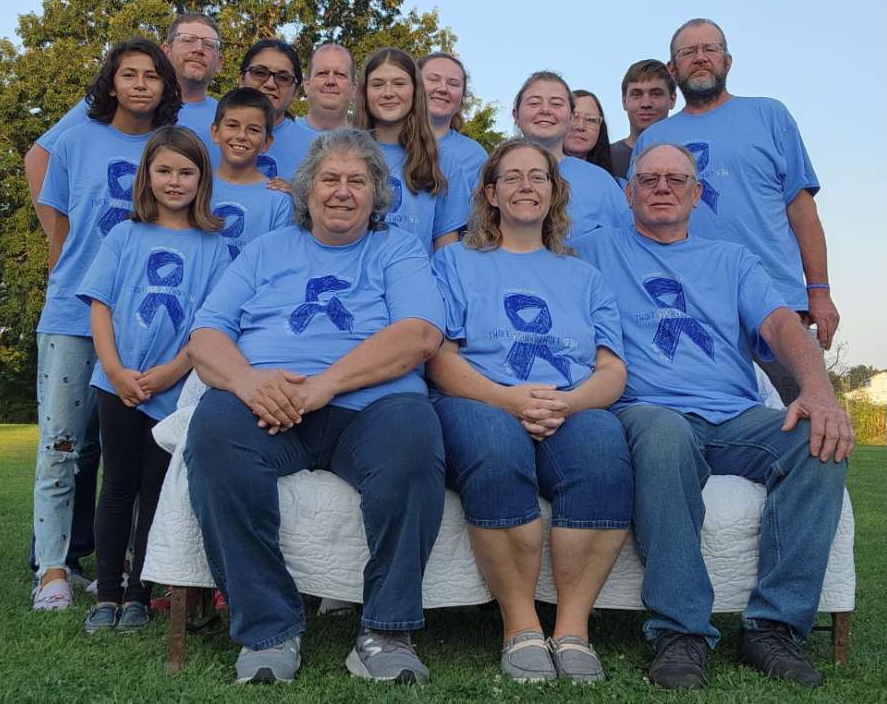Preschool teacher learns first-hand about importance of regular screening for colorectal cancer

LaPLATA, Mo. — Amy Morris thought her inconsistent health maladies were a normal part of the stress of life. She was juggling a lot.
She had just sent her oldest child to college. She was completing her 20th year working in education — she works for the LaPlata R-2 schools as a preschool teacher — while raising an elementary school age child. Her community was still recovering from a school fire, plus her husband travelled frequently for work.
With no family history of illness, her occasional bloody stool, shoulder pain and sensitive stomach didn’t directly point to a life-altering diagnosis.
During the summer of 2024, a routine bloodwork panel revealed low iron levels, so Morris was called back for additional testing. The resulting myriads of tests shocked Morris. She was diagnosed with stage four colorectal cancer. Morris was just 44, a year younger than the standard recommended age to be screened for colon cancer.
The U.S. Centers for Diseases Control and Prevention reports colorectal cancer as a leading cancer in the United States. The American Cancer Society recommends everyone to start regular screening for colorectal cancer at age 45. Those at higher risk based on family history or other factors may need to start screening before age 45.
At the time of her diagnosis, Morris’ cancer had metastasized and spread to her liver. Morris and her doctor immediately sprang into action. Within weeks, Morris started chemotherapy. By March 2025, Morris completed 13 rounds of chemotherapy.
“I was in complete shock. I wanted to do whatever it took to fight this disease,” Morris said.
Morris received a second opinion, which included genetic testing, in Iowa. There were no signs of genetic cancer risks. Morris’ advice is to pay attention to your body, talk to your doctor and ignore any stigma surrounding what you might be feeling or experiencing.
“I have been telling others about the importance of getting checked and if possible, earlier than the recommended age of 45 years old. Just go and get it checked out,” Morris said.
Early detection saves lives
Early detections can lead to a higher possibility for positive outcomes, especially for those at increased risk of colorectal cancer. When detected early, the five-year survival rate for colorectal cancer is approximately 90 percent, according to the American Cancer Society. If detected early, treatment options are often less invasive and more effective. This can lead to better results and a quicker recovery.
Morris’ push for early testing benefited her cousin, who is in her early 40s. Morris’ cousin’s early colonoscopy testing led to the discovery of precancerous polyps in her colon, which were then removed.
Colonoscopy screenings are quick and straightforward procedures. During a colonoscopy, doctors can identify and remove polyps before they turn cancerous. This proactive approach can prevent cancer from developing altogether. Early detection also allows people to make informed lifestyle and dietary changes that can further reduce their risk of cancer and improve overall health.
Alarming trend in colorectal cancer cases
The American Cancer Society reports a concerning trend in recent studies — the incidence of colorectal cancer in younger adults, particularly those born after 1990, has been rising. The rate of colorectal cancer among young adults has increased by more than 50% over the past few decades.
Medical providers at Clarity Healthcare say different test options are available depending on the patient’s needs. Tests can be done at home with Cologuard or Fecal Immunochemical Tests or at providers like Clarity Healthcare. Clarity Healthcare suggests talking to your healthcare provider about which tests are right for you and how often you should be screened.
Morris experienced side effects of chemotherapy, including breakouts, rashes and hair loss, plus additional surgeries including a colostomy. She may be looking at the prospect of a liver transplant soon. Despite this, Morris is still a wife, a mother and working educator. She is determined to do everything in her power to regain her health.
Morris says some of the best support she has received comes from people willing to talk and show up for her and her family.
“It can be hard to let other people do things for you, but sometimes that is what you need. Playing cards with family and just being together have been the most helpful,” Morris said.
Miss Clipping Out Stories to Save for Later?
Click the Purchase Story button below to order a print of this story. We will print it for you on matte photo paper to keep forever.

